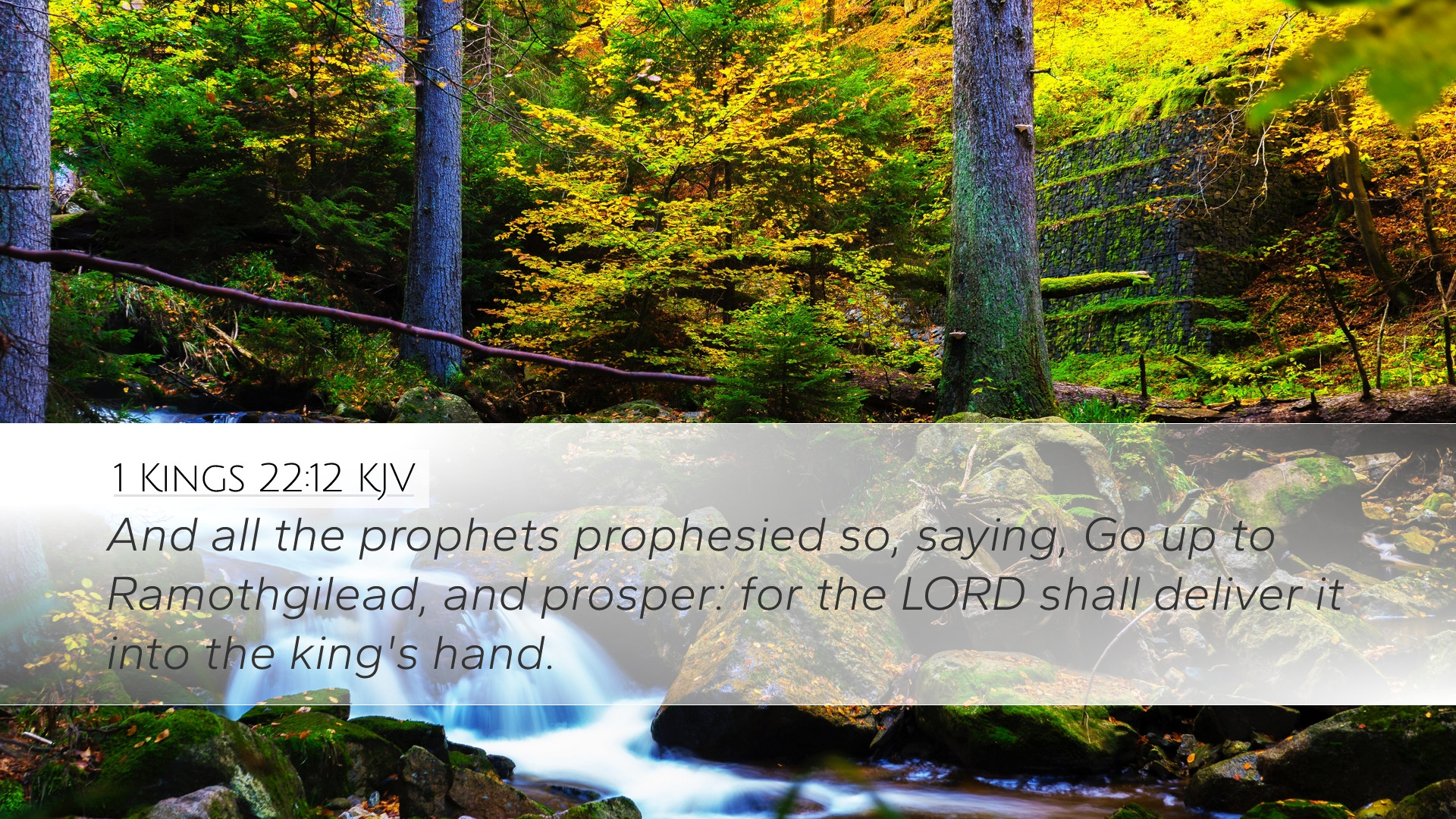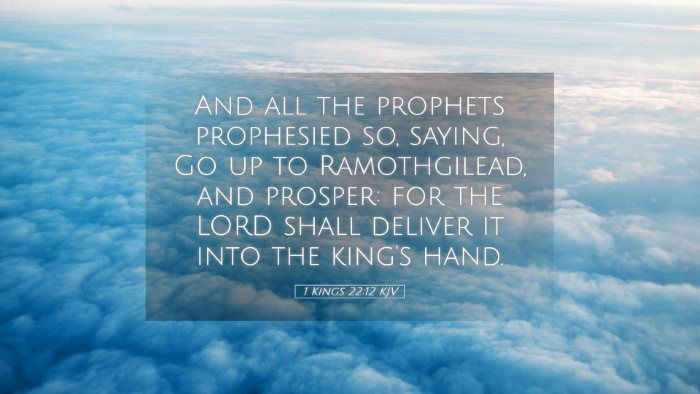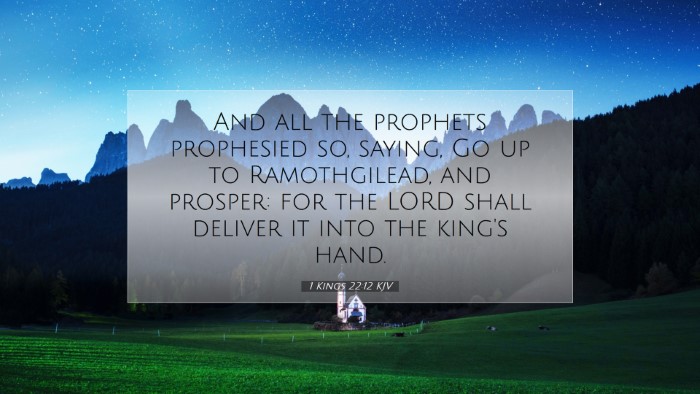Commentary on 1 Kings 22:12
Verse: 1 Kings 22:12 - "And all the prophets prophesied so, saying, Go up to Ramothgilead, and prosper: for the Lord shall deliver it into the hand of the king."
Introduction
This verse occurs in the context of King Ahab of Israel seeking counsel before going into battle against Ramoth-gilead. Ahab gathers 400 prophets, who all predict victory, but the scene also foreshadows a deeper conflict between truth and deception, as represented by the prophetic voices present.
Insights from Public Domain Commentaries
Matthew Henry's Commentary
Matthew Henry emphasizes the collective enthusiasm of the prophets and the contrasting individual integrity of the prophet Micaiah. He notes that the multitude’s proclamation of victory may be indicative of a 'work of the flesh' rather than the genuine working of the Holy Spirit. Henry writes:
- The prophets were in agreement, yet their prophecies were motivated by fear or flattery rather than divine inspiration.
- This instance illustrates a vital truth: not all popular voices speak the truth. Ahab’s reliance on these prophets serves to demonstrate his lack of discernment in spiritual matters.
- Henry also delineates between the promise of victory and the personal responsibility to return to God, emphasizing that God’s true servants will often deliver unpopular messages in the face of overwhelming consensus.
Albert Barnes' Notes on the Bible
Albert Barnes provides a detailed analysis of the political and spiritual climate of the time:
- He notes that the prophets were likely motivated by the desire to please Ahab, reflecting a common tendency in leadership to surround oneself with agreeable voices.
- Barnes asserts the importance of seeking genuine counsel, advocating that God's true prophets will speak with authority even when their messages are contrary to popular opinion.
- Moreover, he indicates that Ahab's decision to favor the majority opinion reflects a fundamental flaw in his leadership, demonstrating an unwillingness to seek out or heed the word of a true prophet.
Adam Clarke's Commentary
Adam Clarke brings a critical eye toward the implications of plurality in prophetic declarations:
- Clarke suggests that the number of prophets does not equate to the truth of their message and warns against the assumption that majority opinion reflects divine will.
- He also critiques the prophets for their superficial messages, highlighting the necessity of integrity and authenticity in prophetic utterance.
- Clarke's analysis of Ramoth-gilead serves as a broader allegory for spiritual warfare, where political motivations often conflict with divine mandates, leading to tragic outcomes when God's direction is ignored.
The Theological Implications
This verse compels a deeper reflection on the nature of prophetic authority and the importance of discernment in leadership:
- The Nature of Prophecy: The very act of prophecy is called into question when examined in the light of truth and falsehood. The prophets’ assurances to Ahab exemplify how human desires can cloud spiritual discernment.
- Discernment in Leadership: A pastor or leader must exercise due diligence in seeking godly counsel, recognizing that not all who profess to speak for God do so truly. This insight is crucial for those leading congregations.
- Consequences of Deception: The outcome of Ahab's encounter with the prophets illustrates the serious ramifications of ignoring prophetic truth in favor of personal desires, a warning for all who influence the spiritual direction of others.
Conclusion
1 Kings 22:12 serves as a poignant reminder of the critical role of discernment in matters of faith and leadership. Both pastors and theologians must take heed of the lessons from Ahab's misadventures with prophecy, ensuring that their guidance is inspired by truth rather than popular sentiment. In a world rife with competing voices, the call for genuine prophetic truth resonates more profoundly than ever before.


